
Book a Consultation
Thank you!
Your form has been sent successfully.

Anal cancer is a condition in which malignant (cancerous) cells form in the tissues of the anus. Despite the increased incidence rate for anal cancer, it is still considered a rare disease since only about 8,000 cases are diagnosed annually in the United States. Cancer of the anal canal is primarily caused by infection with the human papillomavirus (HPV). 91% of anal cancers are thought to be caused by HPV.
HPV can infect skin surface cells as well as those lining the genitalia, anus, mouth, and throat, but not blood or internal organs like the heart or lungs. Physical contact can result in the transmission of HPV from one person to another.
There are many forms of anal cancer, each of which varies by the type of tumor it produces. Anal cancer can be of the following types:
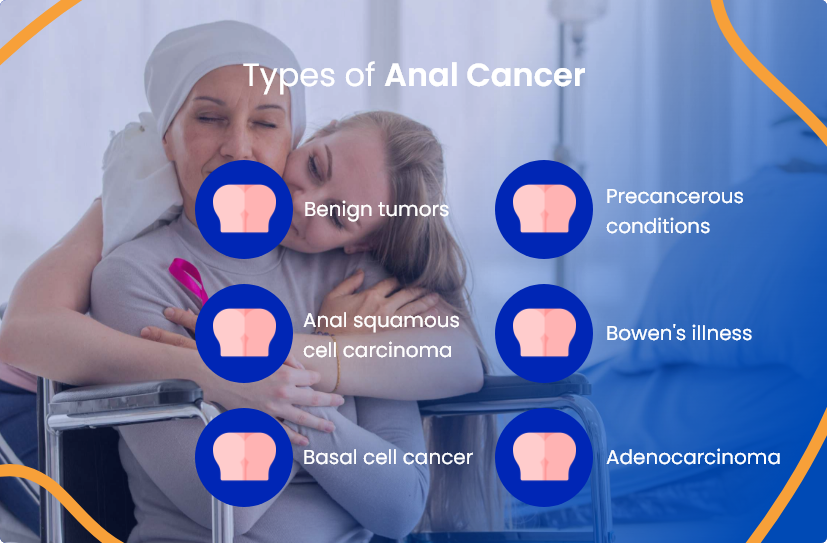
These are non-cancerous tumors that include genital warts (condylomas), skin tags, polyps, and granular cell tumors.
Anal intraepithelial neoplasia (AIN) and anal squamous intraepithelial neoplasia are examples of benign tumors that can eventually turn malignant (ASIL).
The most prevalent type of anal cancer in the US (accounting for 90% of instances) is squamous cell carcinoma. Unusual squamous cells in the anus cause these cancerous tumors (cells that line most of the anal canal).
Squamous cell carcinoma in situ is another name for this disease. These abnormal cells on the anal surface tissue have not penetrated deeper layers.
It is a kind of skin cancer called basal cell carcinoma that affects skin that has sustained exposure to the sun. Basal cell cancer is an uncommon type of anal tumor.
This is an uncommon type of cancer that develops in the glands that surround the anus.
Anal cancer causes the following symptoms:
 changes in bowel habits
changes in bowel habits
 hemorrhaging from the rectum
hemorrhaging from the rectum
 mass in anus or bump
mass in anus or bump
 itching around or discharge from the anus
itching around or discharge from the anus
An anal cancer doctor may suggest one of numerous treatment choices, either separately or in combination, depending on the age and stage:
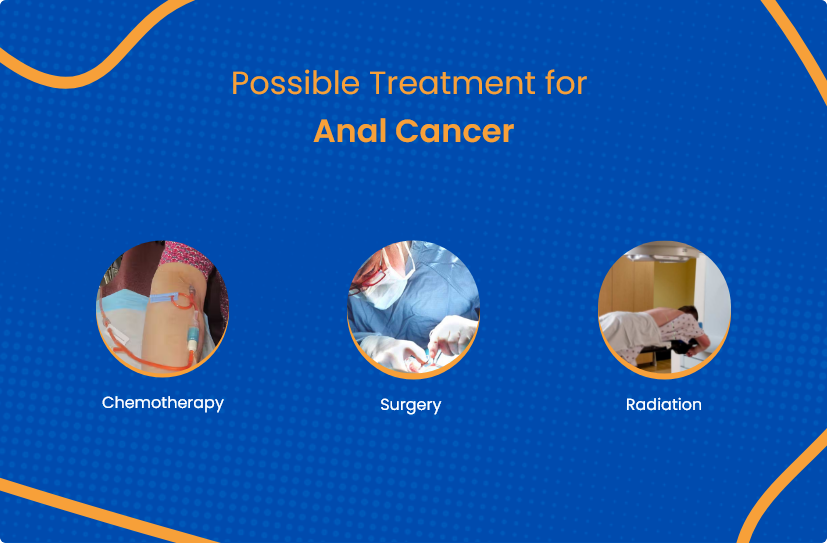
With the help of chemotherapy, cancerous cells can be eliminated and kept from multiplying. It can be administered orally or intravenously. Painkillers are used occasionally to manage symptoms.
Local resection involves removing the anus tumor and healthy tissues around it. People with lower anus cancer that has not progressed to the surrounding structures usually undergo this type of anal cancer surgery. The procedure works best for small tumors and early-stage malignancies.
A more intrusive procedure is abdominoperineal (AP) resection. People who have advanced cancer or have not reacted well to other treatments undergo this procedure. The anus, rectum, or a portion of the sigmoid colon are removed through an abdominal incision in this surgery.
Numerous types of cancer, including cancer of the anus, are frequently treated with radiation. Radiation can destroy cancerous cells in the body, but it can also destroy nearby healthy tissues. This non-invasive cancer treatment is used frequently in conjunction with other cancer therapies.
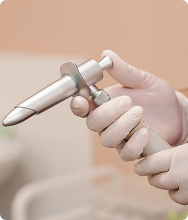
An anoscope is a tube fitted with a light and camera that allows healthcare professionals to observe the anal canal.
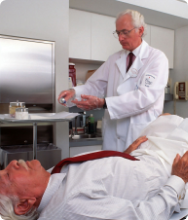
During a digital rectal exam (DRE), the lower rectum, pelvis, and prostate are all inspected. The doctor can use this test to help screen for cancer and other health issues.
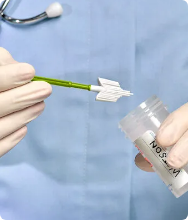
A cotton swab is inserted into the anus during this examination in order to collect cells. The cells are then examined in a lab.
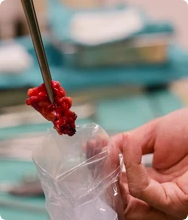
In this procedure, a tiny piece of abnormal tissue from the affected area is removed for laboratory analysis.
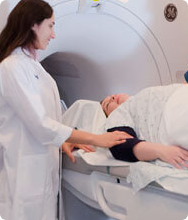
It can identify anal cancer and assist the doctor in determining the severity of the condition.
Our patients have access to a multispecialty team of professionals at ACTC, who work together in a highly collaborative and coordinated manner to provide all aspects of cancer care in one convenient location in Brooksville, Florida. Our doctors are supported by a clinical team with over two decades of experience and a reputation for providing tailored and supportive cancer care.
The following are our providers who you can consult at ACTC:

Hematology/Oncology

Hematology/Oncology

Radiation Oncology

Cancer patients look for a sense of trust and care once diagnosed. At ACTC, we make it our priority to make them feel secure and optimistic about the journey ahead. Our state-of-the-art treatments and dedicated team of specialists ensure world-class care.
Schedule a consultation by calling
 352-345-4565
352-345-4565
Anal cancer spreads gradually. Most anal cancer patients are cancer-free after five years of early therapy.
A sexually transmitted disease known as human papillomavirus and anal cancer are closely associated (HPV). The majority of anal malignancies show HPV-related evidence. The most common suspected cause of anal malignancies is HPV.
There is a lump or mass at the anal opening. There is pain or a feeling of fullness in the area around the anus.
Schedule a consultation by calling
 352-345-4565
352-345-4565